
Domestic
08:36, 07-Jun-2019
What is it like caught in the middle of the trade war?
Updated
09:03, 07-Jun-2019
By Yu Jing
03:34
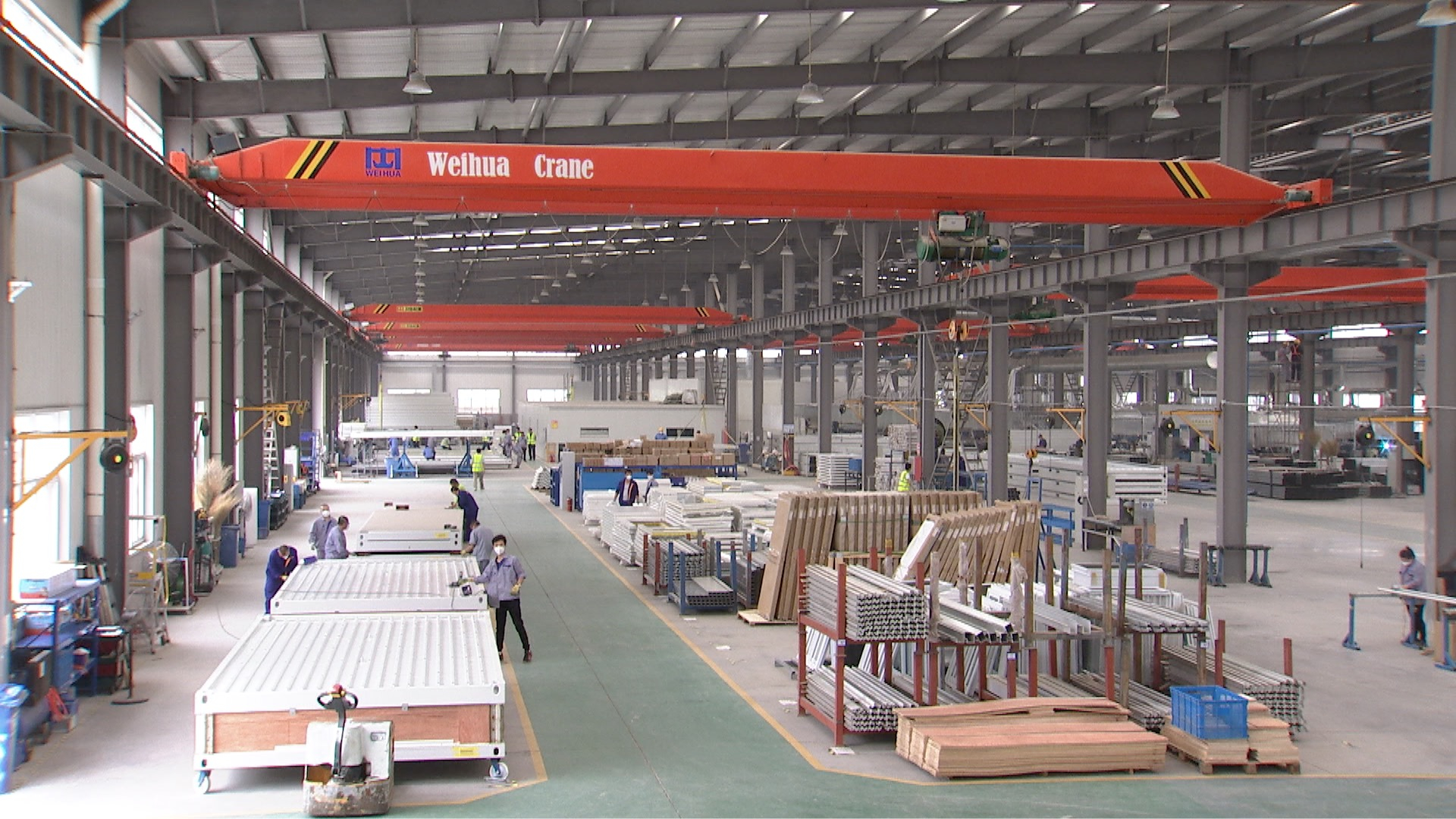
As the trade war drags on, it is tempting to see it as a new normal—one's life goes on without being bothered by the global geopolitical struggle.
But the trade war is not in any way distant. It has changed people's lives in a tangible way as businesses across the world suffer from disruptions in the supply chain and increased operating costs.
Zhou Xulong, knows full well what it's like to be caught in the middle of the trade war. As the managing director for U.S. business for a company focused on modular housing, he witnessed a sharp drop in orders from the U.S. since the first quarter of 2019.
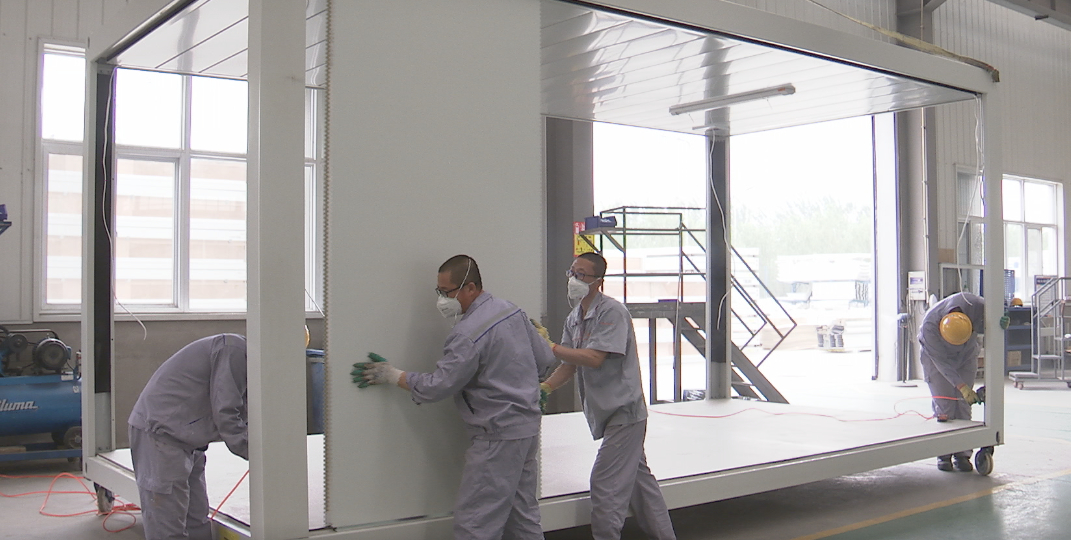
Two workers built up walls of a modular home. /CGTN Photo
Two workers built up walls of a modular home. /CGTN Photo
The products that his company exports to the U.S., modular buildings manufactured off-site in advance and can be shipped to be used as lodging, office buildings for corporations, were subject to a 25 percent tariff increase in mid-2018. Zhou requested us not to disclose the name of his company since he is not authorized to speak for his American client.
"Since our American client mostly place orders on a quarterly basis, normally in the beginning of 2019 we should get order for the first and second quarters of the year from our client," said Zhou Xulong, in an interview with CGTN, "but this year, we only received orders for the first quarter."
The American client that Zhou refers to, is a modular housing leasing company with more than 50 years of history and a global supply chain. It buys prefabricated steel panels from the company that Zhou works for, wood-based sheet materials from Italy and windows and doors from domestic U.S. market. It then assembles the final product using those materials sourced from manufacturers across the globe.
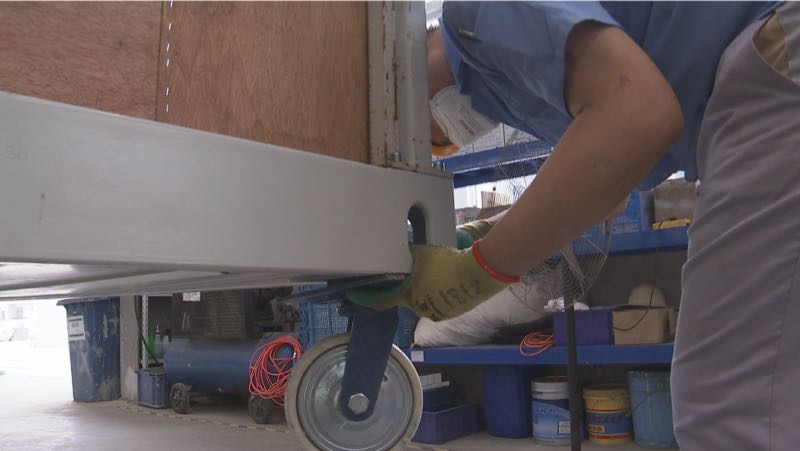
Flooring is assembled at a station of the assembly line. /CGTN Photo
Flooring is assembled at a station of the assembly line. /CGTN Photo
"Our client in the U.S. was very concerned," said Zhou Xulong evaluating the response from his American client to the tariff hike, "because it knew the tariff hike would increase its cost of purchasing and would bring negative impact to its management."
Worst of all, its American client company does not have an alternative supplier. Since low-end manufacturing has mostly left the U.S., there is no local manufacturer of modular housing anymore. Europe, once the primary supplier of modular housing, no longer enjoys quality nor price advantage in comparison to China.
What compounds the problem is an antidumping probe the U.S. Commerce Department launched in the early 2019 into structural steel imports from China, Canada and Mexico. A preliminary determination by the U.S. International Trade Commission said that domestic producers were being harmed by imports of fabricated structural steel being sold at a below fair value.
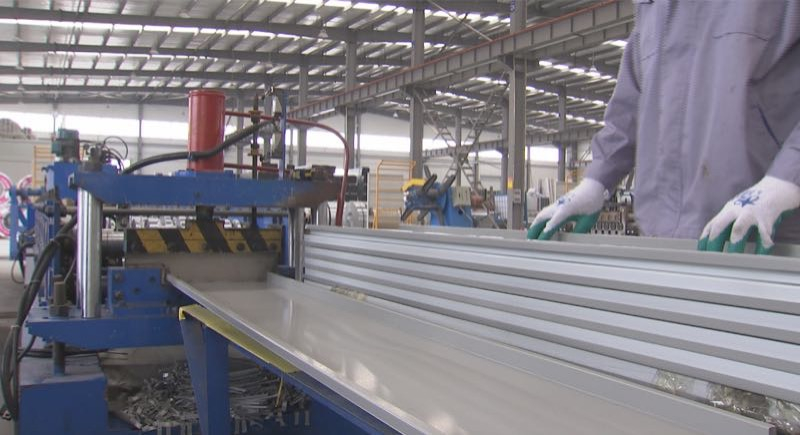
A worker cuts ceiling framing that will be fitted into modular houses. /CGTN Photo
A worker cuts ceiling framing that will be fitted into modular houses. /CGTN Photo
If punitive tariffs are imposed, they can reach as high as 200 percent, said Zhou, which is why its American client by far still has not placed orders for the second quarter of 2019, a break from its tradition in the past years.
Asked if he is concerned that his American client would place order from manufacturer in other countries, Zhou Xulong's answer was negative.
"This collaborative project between us and our American client was first negotiated in 2014, and was put into production in 2016. We spent so much money, effort and resources on this project so we both appreciate it very much," Zhou explained.
But still, the tariff hike, and the anti-dumping probe, would likely affect its American client company in a big way. Because if no order is placed for the second quarter, it means work at the company's assembly center would come to a halt, which would affect the corporations' continuous production.
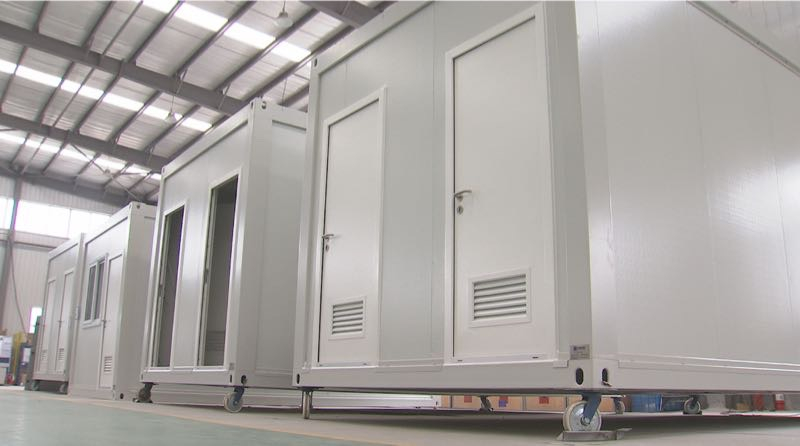
Completed modular homes ready to be shipped out. /CGTN Photo
Completed modular homes ready to be shipped out. /CGTN Photo
"Our American client is hurt even more than us," said Zhou on the impact of the trade war on his company and that of his American counterpart. Deals from the U.S. account for 20% of his total business so Zhou could still turn his eyes to markets elsewhere. But his American client company is left with no option.
A sense of frustration is nonetheless mutual. "From a corporation's perspective we cannot do anything, since a deal is dependent on negotiations on a government level."
After the Trump administration backtracked on its promises in trade talks, Zhou's account offers the administration a sobering example of the tolls of the trade war on both sides of the Pacific.
Videographer: Wang Yanan
Video editor: Wang Yulian

SITEMAP
Copyright © 2018 CGTN. Beijing ICP prepared NO.16065310-3
Copyright © 2018 CGTN. Beijing ICP prepared NO.16065310-3